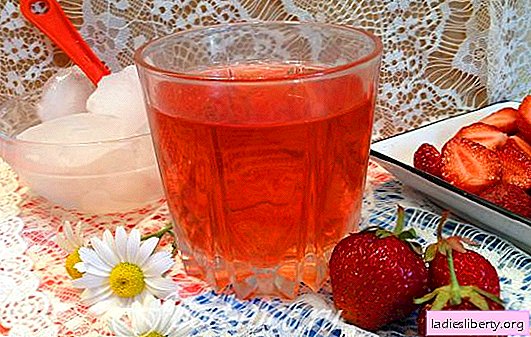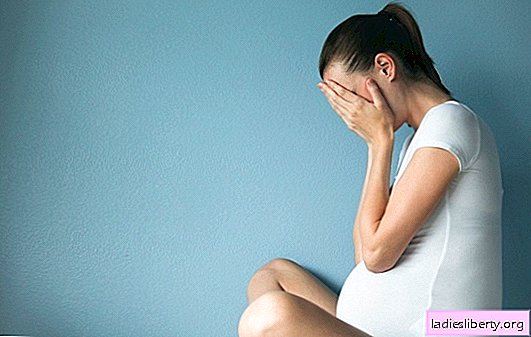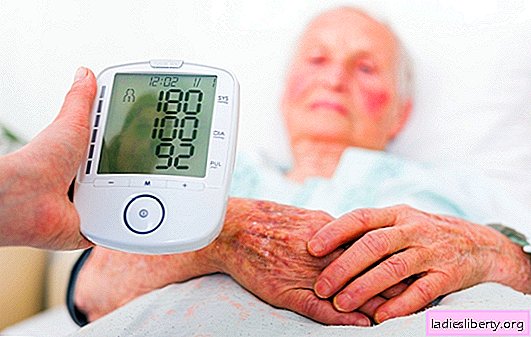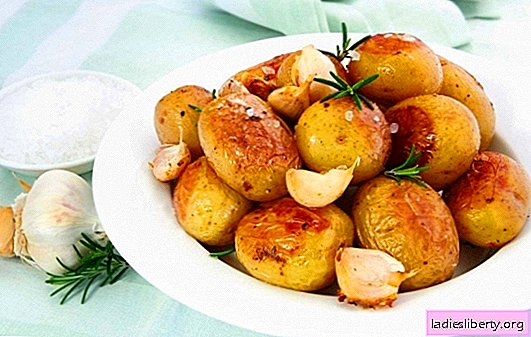
Bladder inflammation in medical practice is called cystitis.
Cystitis is an inflammatory lesion of the mucosa lining the walls of the bladder. This insidious disease is a real scourge of a modern woman. It deprives a woman of confidence and makes her dependent on the toilet room.
Men also suffer from cystitis, but at times less often: the whole thing is the device of the genitourinary apparatus. Untreated bladder inflammation leads to severe complications, which is why the problem cannot be ignored.
Causes of Bladder Inflammation
There are at least a dozen possible causes of bladder inflammation in women.
• Hypothermia. Subcooling itself cannot lead to cystitis. The bottom line is that as a result of exposure to cold on the body, the immune defenses are sharply reduced. This is an excellent reason to activate the activity of pathogenic microflora of the bladder, which is present in all people without exception.
• Infectious lesions of the body. It is not only about inflammatory processes in the pelvic area. The source can be far away and come, as they say, from where they did not wait. Any not sanitized foci of infection, including carious teeth, can cause cystitis.
• Hypodynamia. With prolonged sitting in the pelvic organs, stagnation begins. The result is inflammation.
• A rare visit to the toilet. This is especially true for women. The urethra, urethra, in the weaker sex is short and wide. This is the gateway to infection. With rare urination in the bladder, an ideal environment is created for the reproduction of various pathogens.
• Wrong diet. The prevalence of animal fats in the daily menu and the lack of vitamins lead to a decrease in the body's defense systems.
• Metabolic disorders.
• Overuse of products that irritate the bladder mucosa.
• Diabetes.
• Peak hormonal conditions (this includes periods of menstruation, pregnancy, menopause).
• Unprotected intercourse. Pathogens of sexually transmitted diseases often affect not only the genitals, but also the urethra. Especially often we are talking about gonococci.
• Kidney problems. In a downward path, kidney infections can go down into the bladder with a stream of urine.
These are the main causes of bladder inflammation in women.
Signs of bladder inflammation in women
Cystitis is characterized by its manifestations:
• Pain syndrome. Refers to the first symptoms of bladder inflammation in women. Both acute and chronic cystitis are accompanied by pain. In the acute phase, the intensity of the pain syndrome is higher. Patients describe their discomfort as "aching," "dull pulling." The pain intensifies with urination, as well as immediately after it.
• Frequent urination. Also appear as the first symptoms of bladder inflammation in women. The urge is false, there is no urine or it flows dropwise. The source of the problem lies in the inflammation of the mucous membrane and its irritation. In a normal state, irritation of the membrane of the organ occurs due to the accumulation of urine. The frequency of false urges is up to 20 times a day.
• Polyuria In some cases, an increase in daily diuresis is possible. The normal volume of urine leaving per day is 1.5-2 liters. All that is above is polyuria.
• Imperative urination.
• Hematuria (blood in urine). It is not always observed, only with a hemorrhagic form of the disease, when the vessels of the organ are affected.
• Unpleasant urine odor. The reason is the active reproduction of bacteria.
• Turbid color of urine.
• Symptoms of General Intoxicationsuch as: headache, hyperthermia (up to 39 degrees), nausea, dizziness.
Specific signs of bladder inflammation in women vary from patient to patient. Cystitis may not make itself felt to the last. In some patients, the symptoms are blurred, especially when it comes to the chronic process.
Diagnosis of bladder inflammation in women
Diagnosis begins with a visit to the doctor’s office. Urologists are involved in the treatment of cystitis. If the kidneys are also involved in the pathological process, one cannot do without consulting a nephrologist (not to be confused with a neurologist).
First of all, the doctor asks the patient questions about his condition, then conducts palpation (physical examination). This is enough to make an initial diagnosis, because the symptoms are characteristic. In order to exclude more serious diseases, such as cancer of the bladder and confirm cystitis, the doctor prescribes a series of instrumental and laboratory studies.
Instrumental studies include:
• Ultrasound examination with contrast medium. Allows you to identify structural changes in the body.
• MRI / CT diagnostics. It is prescribed for suspected oncology.
• Cystoscopy. It consists in the introduction of an endoscope into the urethra and a visual assessment of the state of the organ from the inside.
Laboratory research allow you to identify the inflammatory process. In the general analysis of urine, protein, white blood cells, possibly blood (with hematuria) will be found. A general blood test also gives a picture of inflammation: the concentration of leukocytes, monocytes, and ESR is increased.
With the infectious origin of the disease, urine is also taken for culture.
Fortunately, malignant pathologies of the pelvic organs are not so common. But people over 40 need to be on their guard.
Treatment of bladder inflammation in women
Treating bladder inflammation in women is a delicate procedure. In no case should you self-medicate. This is a direct path to the process chronization. For treatment, drugs are prescribed:
• Anti-inflammatory. To remove inflammation.
• Diuretic drugs (diuretics) are prescribed so that urine does not stagnate.
• Antibacterial drugs with an infectious origin. It is important to prescribe only those antibiotics to which the pathogenic flora has not developed resistance.
In the complex of therapeutic and preventive measures for cystitis, natural remedies are often used based on plant components, such as extracts of bearberry leaves, horsetail and cranberry fruits.
For example, dietary supplement UROPROFIT®, whose components have antimicrobial, anti-inflammatory and antispasmodic effects. *
The complex of biologically active substances included in the dietary supplement UROPROFIT® helps normalize urination, improves the functional state of the kidneys and urinary tract, and also reduces the risk of repeated exacerbations of chronic cystitis. *
Complications of bladder inflammation in women
The question arises: why do I need to go to the doctor? Really nothing can be done on their own. Indeed, in the case of cystitis, it is not recommended to delay with radiation. Treatment of bladder inflammation in women should begin immediately, otherwise the risk of developing terrible complications is high:
• Pyelonephritis. It consists in inflammation of the structures of the kidneys. If cystitis exists for a long time, pathogenic microflora moves from the bladder along the ascending path to the kidneys.
• Scarring of the walls of the bladder. It occurs most often. It leads to the inability of the body to stretch normally. As a result, bladder ruptures are possible.
• The return of urine through the ureter to the kidneys. Severe complication, almost one hundred percent leading to kidney problems.
• Purulent inflammation of the bladder. Meet in the practice of doctors is not so common. This serious condition requires immediate surgical attention.
• Oncology of the bladder. It is the result of many years of chronic course.
Prevention of bladder inflammation in women
Specific prevention methods include:
• Wearing loose underwear. Tight and tight underwear leads to compression of the genitals and the vessels supplying them. As a result, normal nutrition of the bladder is deteriorating, moreover, with dense underwear, hygiene is difficult.
• Regular (every 2-3 hours) exits to the toilet. Urine should not stagnate.
• Refusal of products containing substances that irritate the bladder. Onions, garlic, tomatoes, etc.
Besides:
• Do not freeze.
• It is recommended that you commit only protected sexual intercourse and not have an erratic sex life.
Adhering to these rules for the prevention of bladder inflammation in women can seriously reduce the risk of getting sick.
Cystitis is a disease that does not pass without a trace. It is a difficult but often quiet problem that a woman prefers to cope with herself. This is a serious mistake.
Effective treatment of cystitis is possible only in the initial period, then when the pathology is chronic, you can only stop the symptoms during exacerbations. It is important to consult a doctor on time, and even better not to allow the disease itself.
* Instructions for use of dietary supplement UROPROFIT®











